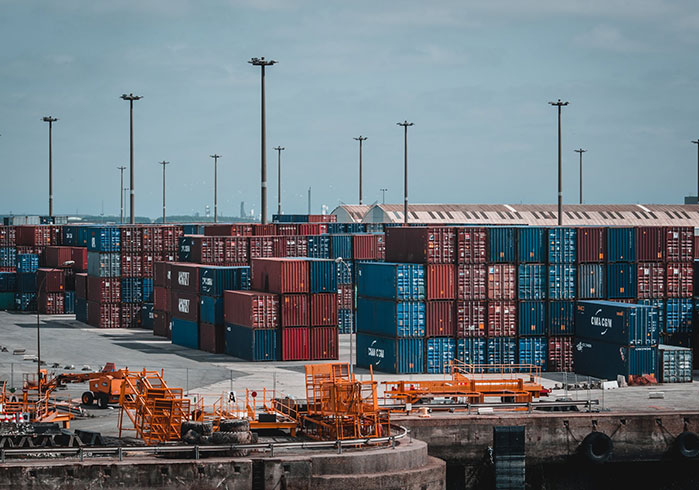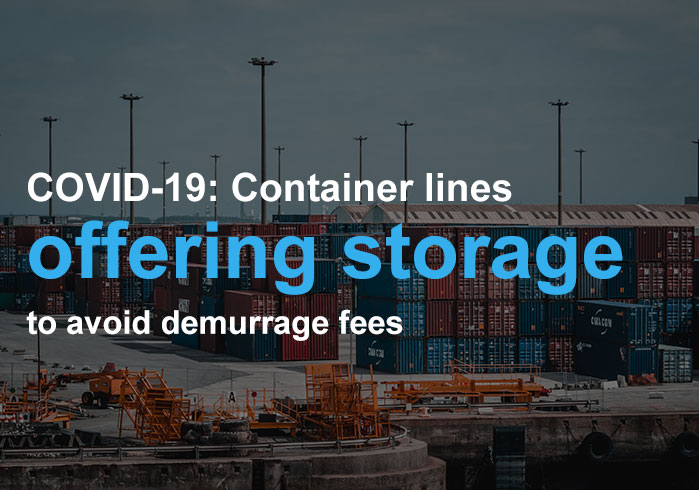
Many container lines are adapting to this new, volatile market by offering storage to importers to avoid demurrage fees. This is a response to the widely held view that there will be some congestion at global ports once cargo owners delay or fail to pick up their imports, not least because of the social distancing requirements in response to the 2019 Coronavirus (COVID-19). If importers are allowed to store their containers at properties belonging to the container lines, it is possible to reduce or even wholly mitigate demurrage fees.
What is the Suspension of Transit (SOT) program?
The Mediterranean Shipping Company (MSC) announced on Tuesday that it was using a Suspension of Transit or SOT program in six of its busiest hubs located in the Americas, Europe, the Middle East, and Asia. The initial concession would be offered to Beneficial Cargo Owners (BCOs) and cargo consolidators who are most likely to be in dire need of urgent storage space.
Accordingly, MSC has sought to ensure business continuity even in these uncertain times while at the same time offering concessions to those dealing in essential products. They may include fresh produce, medical supplies, food, and any other goods that are designated as necessary in specific territories. Such programs offer the potential to make savings in an environment where warehousing storage costs (e.g., per diem and demurrage) are rising.
Other terminal operators and carriers have also offered similar concessions, which are a reflection of a changing market in which unused storage space must be used creatively. This is particularly true given the fact that many Western importers are delaying, reducing, or even canceling their shipments in the wake of the Coronavirus, which has significantly impacted consumption patterns following widespread stay-at-home orders. Some retailers have specifically requested delayed deliveries at their distribution centers as they try and get more business intelligence concerning future consumption patterns.
Through its SOT program, MSC moves and stores goods outside the marine terminals that are located in selected hubs such as Bremerhaven in Germany; Busan in South Korea; Abdullah Port in Saudi Arabia; Lomé in Togo; the Rodman PSA Panama International Terminal; and Tekirdag Asyaport in Turkey. This allows cargo owners who store containers under the SOT program to avoid higher detention and demurrage costs once the “free storage time” expires.
Efforts by other carriers
Other carriers are following the example of MSC. For example, APL intends to dray off any US import containers away from their yards of rail ramps and to a specified storage yard. This helps to avoid high rail storage fees. Maersk is considering the option of draying-off containers or trans loads into a 53-foot container. Truckers working on behalf of the cargo owners can often pick up containers faster from carrier-run storage yards than via rail yards.
There are also other potential opportunities for reducing costs that have not yet been fully explored. The Fenix Marine Services (FMS) terminal in Los Angeles is a significant destination for APL, and CMA CGM vessels. However, there is an adjacent 40-acre lot that could be available for both empties and loaded containers for purposes of short or long-term storage, according to Sean Pierce, who is president and CEO of FMS. It has been reported that Fenix offered to make the property available to other carriers and terminals.
What shippers can do to avoid demurrage fees
Because many container lines are looking for a much more flexible approach, carriers and importers should be on the look-out for potential opportunities. That means asking around and even making proposals for making use of space that is unused due to the changes in consumer and demand patterns across the globe following COVID-19.
We know that Hapag-Lloyd has been receiving more requests from US importers regarding potential opportunities for storing more containers for longer. Alternatively, some are asking for more “free time” once their consignment has arrived. Others are asking to store their containers off the terminal to manage costs safely and sustainably.
Uffe Ostergaard, who is president of the North America branch of Hapag-Lloyd, revealed that the carrier is working with customers to allow them to buy extra storage time and move containers off the terminal when possible. Carriers and importers should be making use of these offers and discussing options with their container lines.


